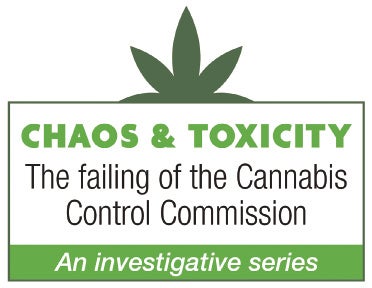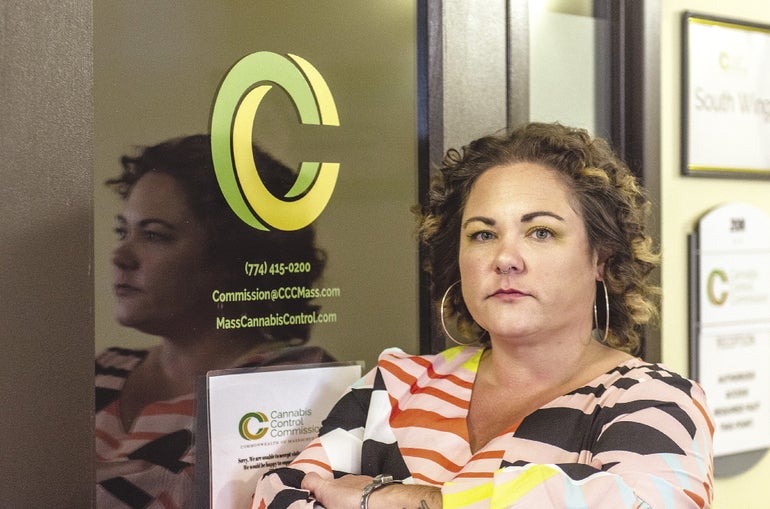A whistleblower featured in a WBJ investigation detailing dysfunction and toxicity at the Massachusetts Cannabis Control Commission has been suspended by the agency.
CCC Business Operations Manager Meghan Dube was placed on paid administrative leave on Jan. 6, according to a letter addressed to Dube from the agency’s human resources department. Dube was one of several employees who spoke to WBJ regarding systematic issues at the seven-year-old agency tasked with regulating the state’s legal cannabis industry.

The letter did not state the reason for the administrative leave, only saying it was pending the review and assessment of an unspecified internal investigation. The agency’s human resources department is led by Chief People Officer Debbie Hilton-Creek, who is also serving as CCC’s acting executive director until newly hired Travis Ahern takes over the role, which is expected to happen in March.
In a statement to WBJ, Dube said she feels the suspension is direct retaliation toward her attempts to inform the public of the agency’s issues. Dube has accused Hilton-Creek of fostering a hostile and retaliatory work environment.
“I am incredibly disappointed, but not surprised, that the retaliation against me has continued to increase exponentially, including now being suspended,” Dube wrote. “Myself and others who have raised concerns about fraud, waste, abuse, and other ethical issues such as conflicts of interest concerns, have faced systemic retaliation, harassment, and discrimination.”
Similar claims about Hilton-Creek were made by three other current or former employees who spoke to WBJ under the condition of anonymity because they fear retribution against their careers and livelihoods. Dube was one of two employees willing to be identified in the story; she said the need to alert the public to the CCC’s problems outweighed any negative impacts on her career.

In response to a WBJ inquiry regarding Dube’s suspension, CCC spokesperson Neal McNamara wrote in an email the agency does not comment on personnel matters.
Hilton-Creek made $202,823 in her dual roles at the agency in 2024, according to state salary data, making her the highest-paid employee at the commission. The second highest-paid employee was former CCC Chair Shannon O’Brien, who made $173,943.
O’Brien was suspended for most of 2024 before being fired by State Treasurer Deborah Goldberg in September, with Goldberg claiming an investigation found O’Brien committed gross misconduct. O’Brien has fought back with legal action, claiming her firing was the result of her attempting to be a change agent at the agency and her criticism of former Executive Director Shawn Collins, who she claimed was being protected by Goldberg.
Dube said she is among several inaugural and early CCC staffers, who have been targeted by current leadership. They tie that observation back to statements made by O’Brien, who has said she was brought into the troubled agency by Goldberg to clean house.
Before she was suspended, Dube filed a complaint with the Massachusetts Commission Against Discrimination, a state agency that enforces anti-discrimination laws, over her treatment at the commission.
Eric Casey is the managing editor at Worcester Business Journal, who primarily covers the manufacturing and real estate industries.

